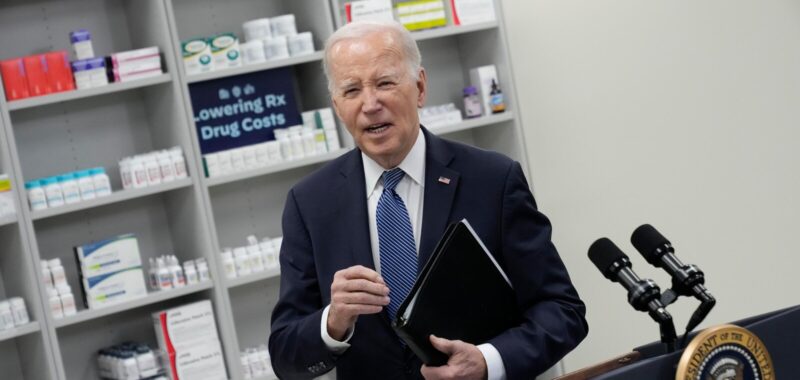WASHINGTON — The Biden administration is taking a victory lap after federal officials inked deals with drug companies to lower the price for 10 of Medicare’s most popular and costliest drugs, but shared few immediate details about the new price older Americans will pay when they fill those prescriptions.
White House officials said Wednesday night they expect U.S. taxpayers to save $6 billion on the new prices, while older Americans could save roughly $1.5 billion on their medications. Those projections, however, were based on dated estimates and the administration shared no details as to how they arrived at the figures.
Nonetheless, the newly negotiated prices — still elusive to the public as of early Thursday morning — will impact the price of drugs used by millions of older Americans to help manage diabetes, blood cancers and prevent heart failure or blood clots.
The drugs include the blood thinners Xarelto and Eliquis and diabetes drugs Jardiance and Januvia. Medicare spent $50 billion covering the drugs last year.
It’s a landmark deal for the Medicare program, which provides health care coverage for more than 67 million older and disabled Americans. For decades, the federal government had been barred from bartering with pharmaceutical companies over the price of their drugs, even though it’s a routine process for private insurers.
“This meant that drug companies could basically charge whatever they want for life-saving treatments people rely on, and all Americans paid the price,” White House adviser Neera Tanden told reporters in a Wednesday night call.
The drug deals will become a focal point for Vice President Kamala Harris’ presidential campaign, especially since she cast the tie-breaking vote to pass the law. She will join President Joe Biden Thursday to announce the drug prices, their first joint speaking appearance since she replaced him at the top of the Democratic ticket, as they both struggle to convince voters that costs will trend down after years of above-normal inflation.
The pair last appeared publicly together to welcome back to the U.S. Americans detained in Russia who were freed as part of a massive prisoner swap earlier this month.
Powerful pharmaceutical companies unsuccessfully tried to file lawsuits to stop the negotiations, which became law in 2022, when a Democratic-controlled Congress passed the Inflation Reduction Act, overhauling several Medicare prescription drug regulations. But executives of those companies have also hinted in recent weeks during earnings calls that they don’t expect the negotiations to impact their bottom line.
The Centers for Medicare and Medicaid Services, which oversaw the dealmaking, is expected to release the final drug prices later Thursday. The new prices won’t go into effect until 2026. Next year, the Department of Health and Human Services can select another 15 drugs for price negotiations.
Before the drug prices were finalized, the Congressional Budget Office estimated the negotiations could save the federal government $25 billion in 2031.
The official event comes a day before Harris is set to unveil part of her economic agenda on Friday in North Carolina, where she was aiming to roll out other ways she plans to help cut costs and boost incomes for the middle class.

